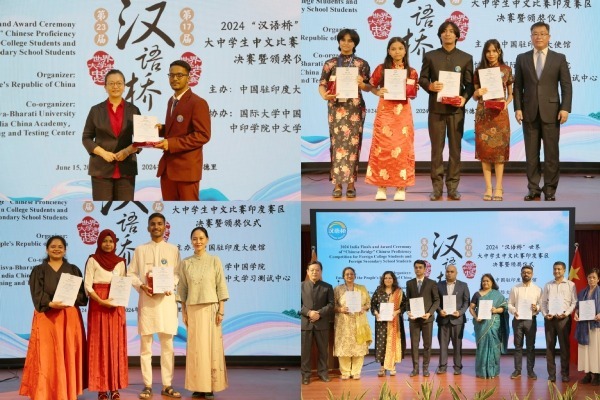
"Stories behind every character of the Chinese language are fascinating. Stories behind the Chinese movies were very interesting and influenced me to learn the language," said Rawat.
Students from different corners of the country, including India's Confucius Classroom at the School of World Languages in Kolkata, West Bengal state; Tagore International School (TIS), New Delhi; Visva-Bharati University, West Bengal; and the University of Mumbai, took part in the competition.
Surekha Dangwal, vice-chancellor of Doon University; and Avijit Banerjee, sinologist and head of the Chinese studies department of Visva-Bharati University, were among those present at the event.
Dangwal said that through language and cultural learning, the university aims to improve and develop better relationships and people-to-people contact between India and China.
Viswa-Bharati University's Banerjee expressed hope that more young people will learn each other's language in the future and build a broader bridge to enhance mutual understanding and friendship between the two nations.
In 1924, Indian scholar Tagore went to China and visited seven cities, including Beijing and Shanghai, over 49 days. He had extensive exchanges with Chinese political, educational and literary communities, and called for friendship. Later, Tagore invited Chinese scholar Tan Yunshan to India, and co-founded the department of Chinese language and culture (Cheena Bhavana) at Visva-Bharati University.
As this year marks the 100th anniversary of Tagore's landmark China trip, a series of events have been held, including the latest photo exhibition, to commemorate the scholar's contribution to promoting exchanges and cooperation between China and India.
The writer is a freelance journalist for China Daily. Vivien Xu in Hong Kong contributed to this report.










